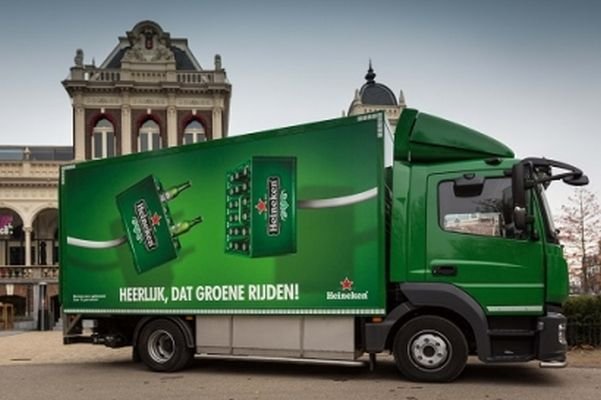Heineken’s commitment to increase renewable use to 70% by 2030 implies an 80% reduction target in carbon emissions compared to the 2008 base year. During 2017 numerous projects were identified worldwide that are expected to contribute to achieving the 2030 ambition. The targets will be externally verified by the Science Based Targets initiative.
Currently 29% of Heineken’s global electricity usage is renewable. Its brewery in Massafra, Italy is one of the largest solar breweries in the world with a capacity of 3.3 MW, while its Göss brewery in Austria is carbon neutral.
In Singapore, Heineken is brewing with solar energy and in the Netherlands the company is using wind energy and solar power.
Today 7% of the thermal energy used by Heineken is powered by biomass and biogas. In Vietnam, for instance, the company sources rice husks from local farmers to heat its brewing boilers. In Brazil a new biomass boiler was fired up in 2017 at the company’s brewery in Ponta Grossa, solely using woodchips from certified reforestation companies.
Heineken expects to set new emission reduction targets for distribution, cooling and packaging in the next two years. For distribution, the company will expand its reduction scope, currently only covering the Americas and Europe.
The company stated, “Collaboration will be needed to increase the recycling rate of materials used in cans and bottles, reduce the amount of glass and other materials used in packaging and to support suppliers to move to renewable energy in their factories.”





